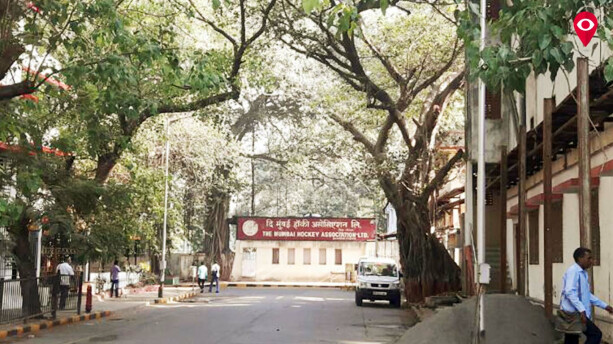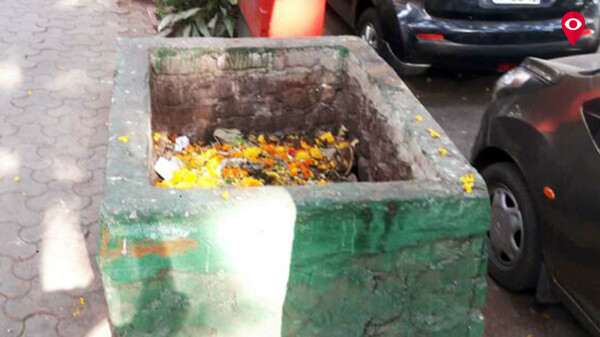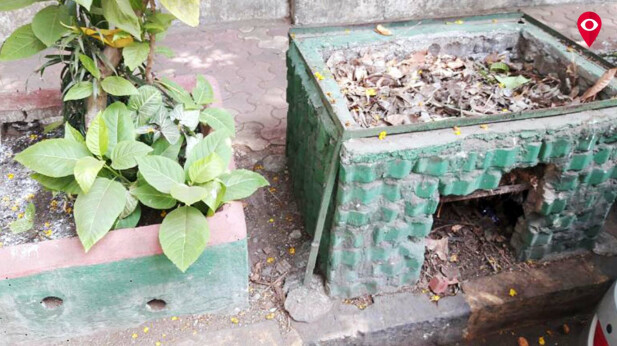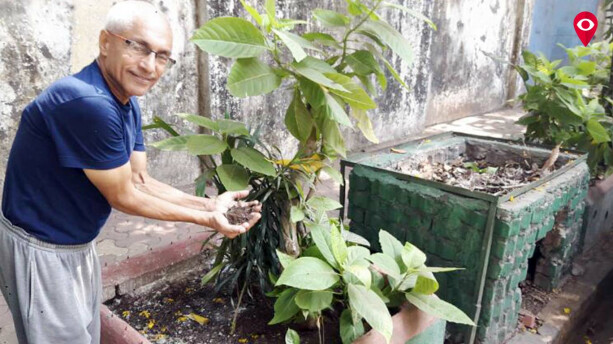
D Road at Churchgate pockets the distinction of being one of the spots in the city where residents heavily outnumber plants. Now however it claims another—it’s perhaps the only quarter mile in Mumbai where the plants are fed by an upscale hotel.

Every day, about 150 kg of uncooked kitchen waste arrives from Hotel Marine Plaza (HMP) for the green inhabitants of D Road. In a city where waste is wanton, plants being spooned tomatoes, eggplant and spinach is a novel solution. And if their diet is any indication, the plants are hardy, fragrant and in emerald health. “And not a mosquito around,’’ is the staunch assurance of Anil Bhatia, the irrepressible engineer of Project Plant.

For almost two decades, Anil Bhatia, a rubber technologist by profession and a disciple of life by habit, has laboured to turn the city’s thoughts around via several civic start-ups, foremost among them being his advocacy of plant rehabilitation and care. The tree planting drive in the city in the ’60s chose specimens like the Banyan, Peepal and Copper Pod, which, decades later, found themselves pitched in a bilateral battle with the city—their aerial or surface roots reflexively elbowing through concrete pavements because the underground arithmetic of cables and waterways stonewalled their natural progress. They gave in.

“Every monsoon I’d hear of about 200 trees falling, and that caught my imagination,’’ says the man who was the BMC’s A-ward coordinator for counsel on tree planting and sustenance on streets. “In addition to underground asphyxiation, the trees were rarely pruned overhead (necessary to keep trees centric) and this upset their balance.’’
Bhatia decided corrective action began at home and won over to his green campaign some of the women of D Road. The upshot was the mobilisation of pint-sized foot soldiers—children who helped line the pavements with pavers from the BMC’s waste yards to make boxed flower beds, and planted saplings. Composting bins were built and help was hired to segregate the garbage, both within each building, and on ‘field’—the pavements where leaf and wet waste composting are carried out.
Today, about 120 trees and over 5,000 saplings form a verdant arch down this lane made famous by its gates to this season’s Holy Land—Wankhede Stadium—though we bet none of cricket’s faithfuls stopped to smell the champas. Or to notice the greenery bursting from every conceivable space—corners and walls of compounds, over the trellises of gates and on both flanks of a pavement. To keep the greenery in fine fettle, the enclosures built around each tree are punctured with holes to allow aerobic respiration. The roots here rarely get out of joint, and regular pruning keeps the body true to its axis. “The trees are watered once a week, and given their mulch once a fortnight,’’ says Bhatia.
Rajesh Gopal Maida is caretaker for this plant and earns Rs 4000 every month. He told Mumbai Live, " 20 years ago, there were just 18 trees, now there are 200 trees on D road with the help of the ALM. "
 The Eden planted near Wankhede has been such a success that school kids are brought here for life science lessons, and a documentary was made by journalism students. Bhatia even tried evangelising fellow neighbourhoods, “but they expected me to do everything for them,’’ he says.
The Eden planted near Wankhede has been such a success that school kids are brought here for life science lessons, and a documentary was made by journalism students. Bhatia even tried evangelising fellow neighbourhoods, “but they expected me to do everything for them,’’ he says.
It’s a pity. If they had been willing, they too would have had the communal rows of avian ethnicities—cuckoos, sparrows, coppersmiths, parrots—batter the air.





